May 16, 2025 | 10:00 GMT +7
May 16, 2025 | 10:00 GMT +7
Hotline: 0913.378.918
May 16, 2025 | 10:00 GMT +7
Hotline: 0913.378.918
The Vietnam National University of Forestry (VNUF) recently convened an international conference in Hanoi, titled "Carbon Benefits Linked to Sustainable Forest Management: Education, Research, and International Integration." Numerous domestic and international scientists and specialists participated in the event.
The goal of the conference was to share research findings, opportunities, challenges, and lessons learned in the fields of education and scientific research concerning sustainable forest management and carbon trade, both domestically and internationally. It aimed to enhance collaboration at the national, regional, and international levels in the areas of education, research, and innovation in forestry, carbon trading, and sustainable forest management.
Prof. Dr. Pham Van Dien, Rector of VNUF, underscored in his introductory remarks: "Sustainable forest management not only supports biodiversity conservation, water resource preservation, and sustainable livelihoods for communities, but also mitigates the impacts of climate change by absorbing carbon. This is an essential occasion for us to exchange ideas and suggest practical solutions in order to achieve sustainable development objectives."
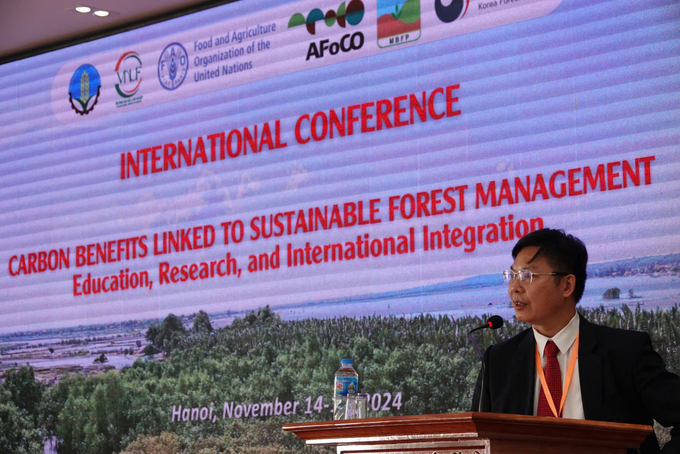
Prof. Dr. Pham Van Dien, Rector of Forestry University, speaking at the conference.
The main driver of climate change, as per the IPCC, is the increase in greenhouse gases that has occurred since the Industrial Revolution in the 18th century. One of the most effective solutions is the reduction of carbon emissions through sustainable forest and land management. The global carbon market has allowed Vietnam to engage in international collaboration, which has facilitated the exchange of knowledge and research in the field of forest resource management.
Dr. Rémi Nono Womdim, the FAO Representative in Vietnam, emphasized the forest carbon market's significant potential to generate additional income for forest proprietors and communities. He also observed that the workshop is in accordance with the strategic priorities of the FAO and the objectives of the UN-REDD Program, which are to promote sustainable forest management, reduce emissions from deforestation and forest degradation, and increase forest carbon stocks in developing countries (REDD+).
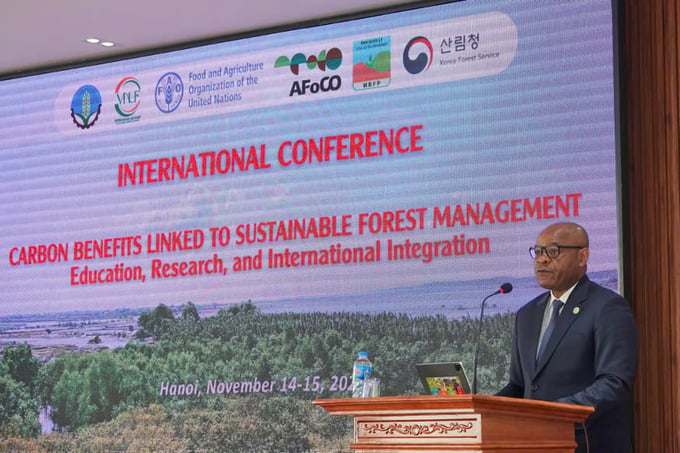
Mr. Rémi Nono Womdim, FAO Representative in Vietnam, assessed that the workshop is very consistent with FAO's priority strategy and the goals of the UN-REDD Program in promoting sustainable forest management and reducing emissions from deforestation.
Deputy Director General of the Department of Forestry, Mr. Pham Hong Luong, provided a comprehensive overview of the forestry sector's development trajectory through 2030. The objectives encompass the application of advanced science and technology, the prioritization of sustainable forest protection and development, and the enhancement of policies to support local communities.
He declared that the forestry sector is "consistently improving its policies, fostering innovation, and diversifying production activities with an emphasis on circularity and sustainability." The Forestry Law's practical implementation and the development of plant species that are compatible with various ecosystems are also key priorities.
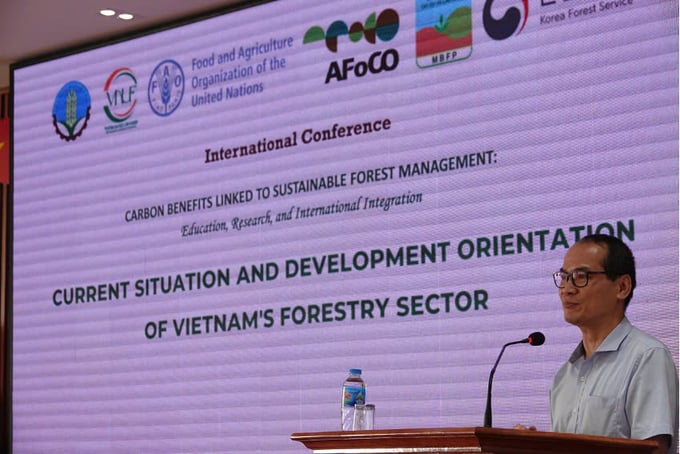
Mr. Pham Hong Luong, Deputy Director of the Forestry Department, shared about the forestry development orientation until 2030, with the goal of prioritizing sustainable forest protection and development, strengthening policies to support people and applying science and technology.
Furthermore, the conference explored developing a sustainable carbon market in Vietnam and exchanging knowledge and research collaboration on carbon trading. Vietnam's forests are essential in the current context, as they absorb carbon dioxide, regulate the water cycle, reduce soil erosion, and conserve habitats for a variety of species, all of which are threatening ecosystems due to climate change, biodiversity loss, and environmental degradation.
VNUF is a preeminent university in Vietnam that specializes in sustainable forest management, ecological economics, and forestry education and research. The institution fosters discussions on sustainable management practices and forestry by actively engaging with domestic and international partners.
Prof. Dr. Pham Van Dien reaffirmed his dedication to the advancement of international collaboration and the provision of high-quality education to the younger population in order to provide them with the requisite skills for natural resource management. This is not only our mission, but also our obligation to the international community.
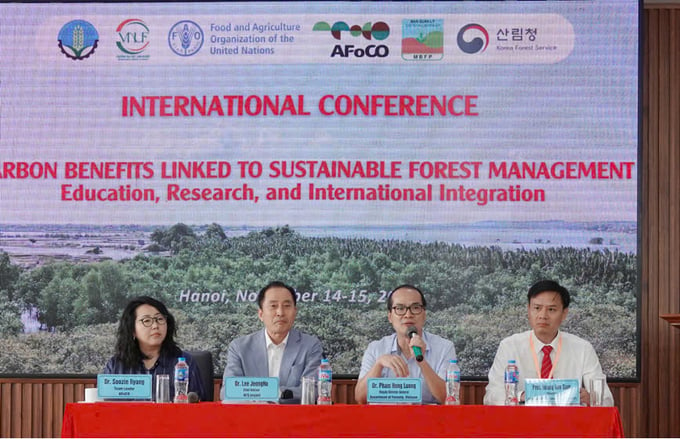
Experts, educators, and students come together to discuss ways to maximize carbon sequestration from forests, promoting ecological economics.
The conference opened up new opportunities for collaboration in research and education regarding forest resource management and carbon trading. Experts, educators, and students discussed optimizing carbon absorption in forests and promoting ecological economics. In the near future, the following are the top priorities: the development and implementation of sustainable forestry strategies, the improvement of management capacity, the application of new technologies, and the proactive integration into global networks.
Vietnam is progressively asserting its involvement in global efforts to address climate change due to its extensive forest area and biodiversity. The workshop's findings and solutions will not only enhance Vietnam's environmental protection strategies but also aid in the international community's collective campaign against ecological degradation and climate change.
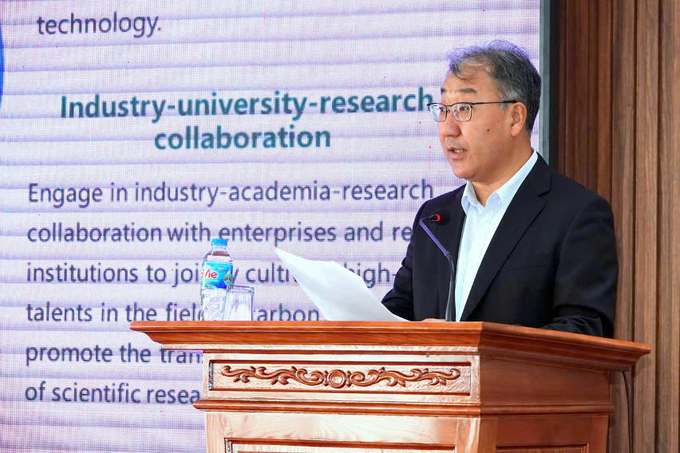
Prof. Dr. Wang Tao, Vice President of the Council of Beijing Forestry University, China.
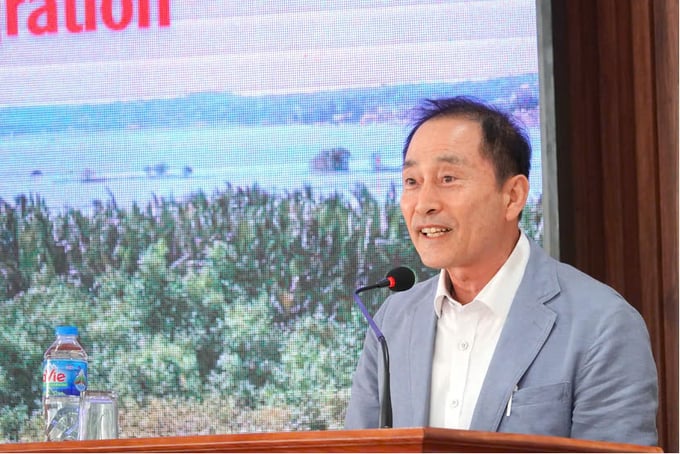
Dr. Lee Jeongho, Chief Advisor of KFS project, Korea.
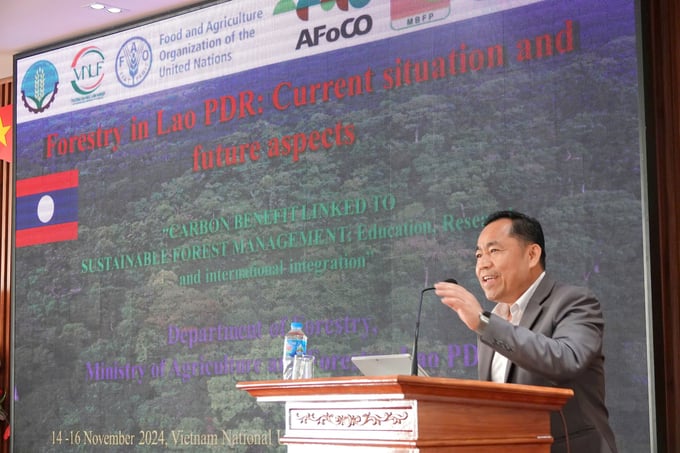
Mr. Somvang Phimmavong, Director of the Lao Forestry Department.
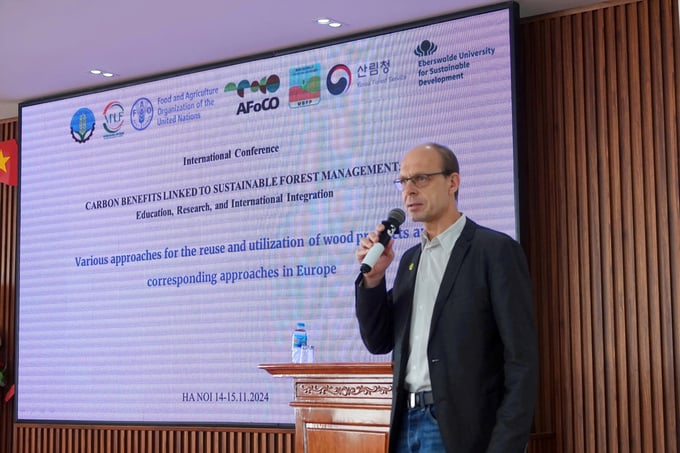
Prof. Dr. Alexander Pfriem, Vice Rector of Eberswalde University, Germany.
Translated by Linh Linh

(VAN) Veterinary training should focus on quality, not just quantity. Veterinarians also need more options to pursue specialized training.

(VAN) The veterinary industry needs to be viewed objectively and further invested in to properly demonstrate its role and importance in the new context.

(VAN) The number of veterinarians graduating each year is not enough to meet actual needs, hence a difficult problem for the growing livestock industry.

(VAN) The strategic partnership between Cambodia, the Philippines, Vietnam, and CGIAR ensures that innovative solutions effectively address national priorities for food system development.

(VAN) This was affirmed by the UK Minister of State at the Department for Environment, Food and Rural Affairs during a working session with Deputy Minister Tran Thanh Nam on May 13.
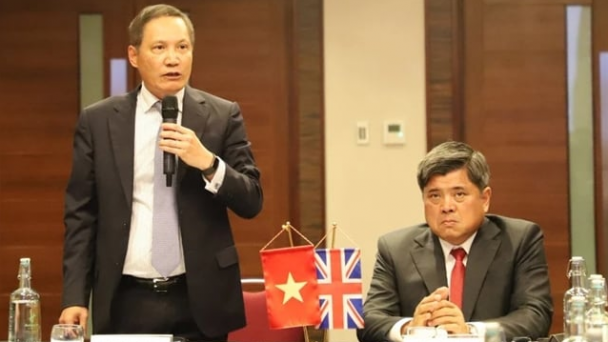
(VAN) On May 13, the Ministry of Agriculture and Environment, in coordination with the Embassy of Vietnam in the United Kingdom, organized a seminar titled 'Connecting trade in Vietnam-UK agricultural, forestry, and fishery products'.
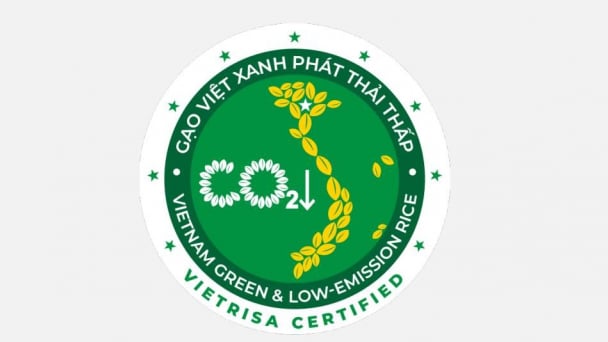
(VAN) The launch of the Vietnam green and low-emission rice brand is a positive signal for both businesses and farmers, marking readiness to reach new heights in the global market.